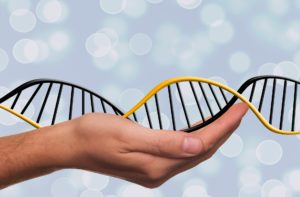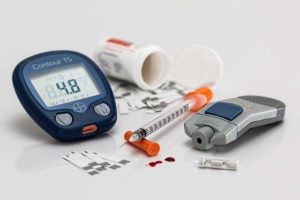You Need to Be Prepared to Submit Your DNA for Criminal Charges
Posted June 5th, 2019 by Anthony Carbone, PC.
Categories: Criminal Defense.
 It could catch you totally off base. In some cases, New Jersey laws allow the police to collect DNA for criminal charges. That said, not everyone accused of a crime faces this possibility. Meanwhile, the DNA master database may soon increase in size.
It could catch you totally off base. In some cases, New Jersey laws allow the police to collect DNA for criminal charges. That said, not everyone accused of a crime faces this possibility. Meanwhile, the DNA master database may soon increase in size.
Facing child pornography charges? You already know the serious nature of these types of offenses. Imagine you accidentally stumbled across some inappropriate photographs of children engaged in sexual poses or activity. An innocent mistake could soon mean more significant headaches than you ever dreamed. Convictions for child pornography come with steep penalties. Meanwhile, there’s something new to consider. If Governor Murphy signs a pending bill into law, you’ll have to provide your DNA sample. The New Jersey legislature already unanimously approved the measure.
You might be surprised to learn this requirement ties to arrests rather than convictions. And, there’s no supposition that you’ve personally engaged in sexual conduct with a minor child. The new law expands the list for cheek swabs to secure DNA samples. To be clear, the new DNA requirements would relate to endangering the welfare of a child by producing, distributing, or possessing child pornography. Once again, you may not understand why there’s no need for a conviction.
- In 2013, the United States Supreme Court considered the issue. In short, Maryland v. King stands for the premise that DNA evidence constitutes a legal search. At the time, Justice Anton Scalia, a conservative juror disagreed. He equated the requirement of accused defendants as a violation of their Fourth Amendment rights.
DNA Samples for Criminal Charges in NJ
NJSA 53:1-20.19 provides legal definitions regarding DNA records and samples. It also outlines the meaning of the State  DNA Database, which supplies information to the FBI.
DNA Database, which supplies information to the FBI.
In the meantime, you should also know the current conditions for DNA samples as outlined in NJSA 53:1-20.20. If you’re accused of particular crimes, law enforcement authorities will arrange for a cheek swab before you are released from custody. For now, the list of charges includes violent crimes and certain sex offenses, such as:
- Aggravated sexual assault
- Sexual assault
- Aggravated criminal sexual contact
- Criminal sexual contact
- Kidnapping
- Murder
- Manslaughter
Juveniles accused of any of these crimes also are subject to providing DNA samples. Meanwhile, it might interest you that this is not the case in all states. And, only 30 states contain laws that require DNA testing after an arrest. You can imagine the potential problems. Even if you’re not guilty of the crime you’re accused of, your DNA could lead to an arrest in an otherwise cold case.
In Maryland v. King, the Supreme Court wrote that “taking and analyzing a cheek swab of the arrestee’s DNA is, like fingerprinting and photographing, a legitimate police booking procedure.” However, it might also open a Pandora’s Box of sorts. Some make the argument that only those criminally convicted should face the requirement to provide DNA samples. After all, what happens to those accused and ultimately found innocent?
Expungement of Records
 So, are your DNA samples kept on file forever? NJSA 53:1-20.25 provides the conditions you can request expungement of your records from the state database. It’s something you should consider if you meet the criteria. Some examples constituting a reason for expungement of your DNA records include:
So, are your DNA samples kept on file forever? NJSA 53:1-20.25 provides the conditions you can request expungement of your records from the state database. It’s something you should consider if you meet the criteria. Some examples constituting a reason for expungement of your DNA records include:
- Dismissal of the charges that caused you to be arrested
- The trial resulted in your acquittal
- Criminal conviction reversed and the case dismissed
You should consult with an experienced criminal defense attorney when it comes to expungement of your records from the state’s DNA database. Within 20 days after your application, the law requires a hearing to determine if the expungement is warranted.
Contact Us
With over three decades representing criminal defendants, the Law Offices of Anthony Carbone is prepared to help you. Contact us at 201-829-3805 to set up a meeting to ensure your rights are protected.


